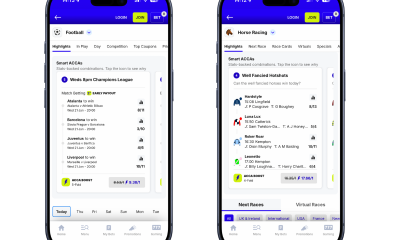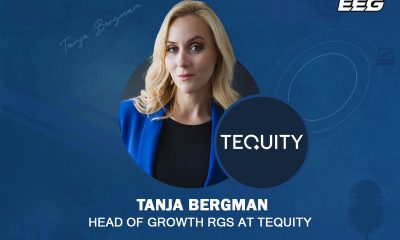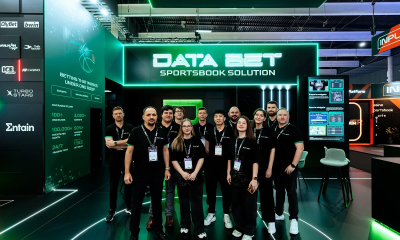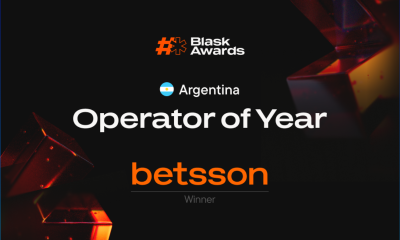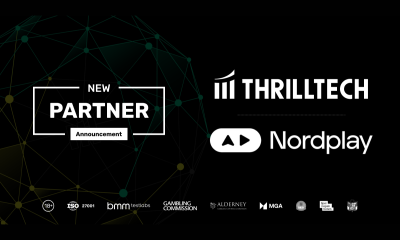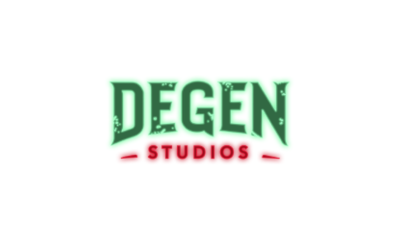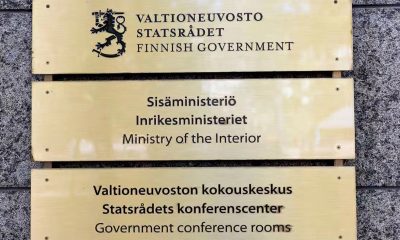Interviews
Strategies for Cultivating Player Engagement: Insights from Head of SOFTSWISS Sportsbook Alexander Kamenetskyi
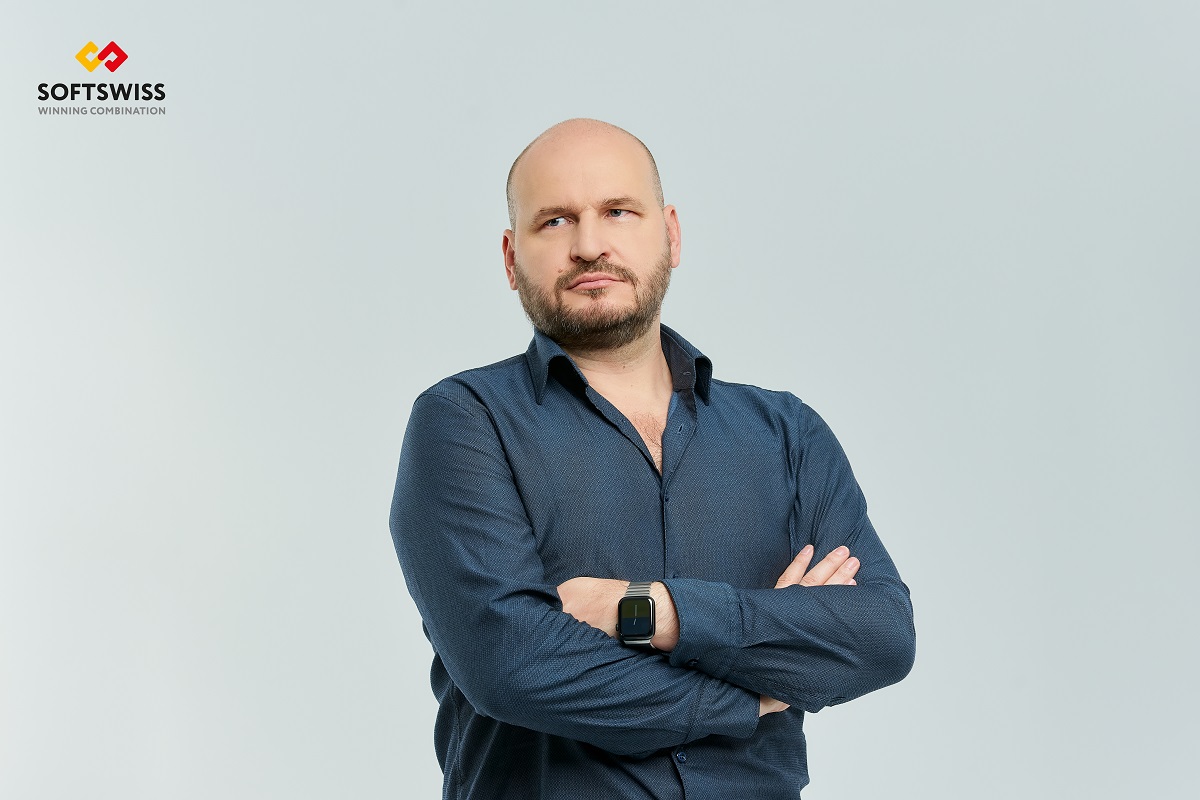
Alexander joined the company in May 2020. He has more than 26 years of experience in Sports Betting and Gambling. His expertise lies in betting trends, iGaming sports industry analytics, product development, and product team management.
From your perspective what are the most significant issues confronting betting and gaming companies?
Within the iGaming industry, two core objectives take centre stage: player attraction and player retention. In this context, two pivotal aspects demand our attention.
Firstly, if we take a closer look at the strategies and products of B2B companies, it becomes quite evident that many of them grapple with truly understanding what players really need. Secondly, in the world of betting, it’s not just about offering a product, it’s about making sure that product actively engages players.
What is more, it’s imperative for a bonus system to operate like a well-tuned instrument in the operator’s hands. It should allow them the flexibility to finely adjust the player journey from the moment they step into the project and keep them engaged for the long haul. We are talking about creating an environment where players are not just involved but genuinely interested.
At the same time, we understand that players may want to explore other gaming projects. Our key objective here is to ensure that once they switch to another platform, they immediately come to realise that our bonus system offers a more captivating and user-friendly experience. They might not be able to explicitly explain why, but they will unmistakably feel the distinction. This remains the foundational principle behind our development efforts.
What do you think about such methods of keeping attention, as gamification?
We all have this inner child inside us, right? And we often end up telling that inner child to put away the toys. That’s where gamification steps in. It’s like this cool trick where even apps that have nothing to do with games sneak in some fun stuff.
In the financial sector, there’s this interesting bank app that cleverly incorporates gamification principles. Now, you might think banking is far from gaming, but this app offers some cool incentives. Imagine getting extra cashbacks, cool avatars, and bonuses just for using the app actively. For instance, when you buy tickets to three different countries, they reward you with a ‘traveller’ avatar. They’ve even got this central character, a cat, that you can interact with, turning your banking tasks into a fun gaming experience.
It all comes down to our basic need to play, something we usually hold back on. But when you sprinkle in a bit of fun, engagement shoots up. We start getting into missions and quests, and that keeps us coming back for more. That’s exactly what these app developers are after – they want to keep us hooked. So, we keep coming back to take care of our virtual cat or spin that wheel because, let’s be honest, missing out on those means fewer bonuses. Plus, we are all in on those weekly missions to boost our ranking. It’s all about that core principle – making it fun to keep us around.
How can an operator gain player loyalty?
Throughout my years in this field, I’ve come to truly appreciate the power of personalisation. It’s a game-changer that goes beyond the allure of bonuses or the thrill of gamification.
Within our operations, we have specialised departments like retention and VIP retention. Their mission is to treat each VIP player as a unique individual, not just another customer. It’s about understanding that VIP players have distinct needs and preferences. By promptly addressing their requests and concerns, we make them feel genuinely valued. This principle isn’t confined to the betting world, it’s a universal truth. Bonuses certainly add excitement, but they’re just an extra layer.
When it comes to engaging with VIP players, I have frequently witnessed various scenarios. Sometimes, players approach with questions that have nothing to do with the project itself. They might ask for directions or assistance with entirely unrelated matters. Those who actively step in to help in such situations often become heroes in the eyes of the players. It’s akin to creating a bond where players instinctively look to us for any need, whether it’s related to placing a bet or seeking guidance on entirely different matters. It’s about cultivating a reflex in the player that says, “If I need something, I know where to go.”
When considering regular players who are not in the VIP category, it’s imperative to gauge their retention levels. For example, a company might use a system featuring five retention levels based on player profitability. Employees are assigned KPIs, which might include elevating their clients to the next retention level. Based on their performance, employees can also progress to the next level. This strategy has proven to be highly effective.
Furthermore, when discussing player retention, I would pay attention to recommendations. For instance, consider a scenario where we inform a player that their favourite team is scheduled to play today, but one of the key players is sidelined, and the team is facing issues with their striker. Our approach isn’t about misleading the player; it’s about establishing trust, knowing that maths will do the rest.
Another effective approach to engage players is by introducing tournaments, quests, and jackpots that encourage friendly competition among players. These diverse tools can be harnessed to incentivise players to participate in various activities. For instance, the operator might announce that all bets placed on the International 2023 will contribute to a specific jackpot. This strategy motivates players to actively partake in these actions, enhancing their overall experience.
When discussing betting with odds, it’s important to keep in mind that our profits are linked to the margin. Unfortunately, this fundamental concept is often overlooked by many operators in the betting industry, even those with extensive expertise. It’s common for them to disregard the critical point that a bookmaker’s earnings aren’t intricately tied to the odds they present but are, in reality, shaped by the margin they can uphold.
In certain tournaments, we encourage players to engage in a competition for a shared prize pool. These tournaments come with two key limitations: firstly, the prize pool is fixed for that specific tournament, and secondly, there is a time limit since the pool gradually decreases if players are not actively involved.
Moreover, we can design tournaments where players receive rewards for specific in-game actions or achievements, adding an extra layer of excitement and engagement to the competition.
At SOFTSWISS, what are your primary areas of focus when it comes to designing and enhancing your products?
We have three main criteria in mind. The first two are super important, while the third serves to complement them.
Firstly, we always look at the player’s needs. Keeping players engaged and interested is a top priority. Secondly, we’ve got what the operator needs. We want to motivate players to do things that are not only fun for them but also good for the operator. Like, encouraging bets on live and express events – it’s a win-win. Lastly, there’s market trends. We are always keeping an eye on what’s hot and what’s not because we know other operators are doing the same. We want to stay in the game and make sure our players have the latest and greatest.
And let’s not forget about the importance of automation. The smoother and more automated these tools are, the better they work for both operators and players.
Diving into the finer details, let’s examine what a player really needs. Ideally, betting should be effortless for them, requiring minimal thought, and in return, they should receive bonuses for their actions, serving as a catalyst for their engagement. It’s imperative that players feel acknowledged, encouraged, and valued – just like that.
When it comes to bookmakers, their main objective is to motivate players to bet on live and express events. This is all about boosting player engagement. However, operators generally prefer not to invest excessive time and resources into managing bonuses and customisation, as it can be a challenging task.
Another challenge revolves around content. It involves the need to brainstorm ideas, create content, publish it on the site, promote it to players, and most importantly, ensure that they engage with it. Many companies maintain dedicated departments to handle these tasks, specifically focusing on content management. Unfortunately, this can result in substantial financial overhead as these departments need ongoing maintenance and resources.
Our system empowers operators to effortlessly create new bonuses in a matter of minutes. Even for bonuses that were issued in the past, it takes less than a minute to relaunch them. The brilliance of our system lies in its ability to automatically generate T&C and banners, completely removing the need for operators to get involved in this process.
Furthermore, when a bonus reaches its expiration date, our system removes the associated banner and all related content automatically. This means operators don’t have to spend their valuable time and energy on content management. In essence, we strive to save our partners precious time and streamline their operations. With our product, we aim to shift operators’ primary focus towards attracting more traffic while automating repetitive tasks, ultimately making their workflow much more efficient.
The SOFTSWISS Sportsbook comes equipped with integrated gamification features, including exclusive industry bonuses and jackpots, providing both players and operators with a wide array of enhancements to elevate their gaming experience. Beyond the typical sports betting bonuses, the SOFTSWISS Sportsbook boasts four entirely unique bonuses that play a pivotal role in substantially boosting player engagement – Hunting Bonus, Hunting Tournaments, Lootbox Bonuses, Freebet Booster.
Another challenge that operators often grapple with is determining the right value for bonuses. It’s essential that players receive bonuses that match their betting activity and continue to entice them. This balance is critical in all areas of betting, whether it is online casinos, offline casinos, or sports betting.
The main obstacle here is finding a way to reward smaller players appropriately without overly lavishing them with bonuses. For instance, it wouldn’t make sense for a player betting just 1 euro to receive a whopping 100 euro bonus. Conversely, it’s equally vital not to underwhelm high-value players. It can be quite awkward when a VIP player, who is wagering substantial amounts, is offered a mere 100 euro bonus. Finding this balance is a delicate yet crucial aspect of our work.
The real challenge here is to make sure we automate this system effectively. Fortunately, we’ve got it covered through our Hunting Bonus. Our system operates seamlessly in automatic mode, guaranteeing that players who consistently bet larger amounts, like 3,000 euro, get the free bets they deserve.
The SOFTSWISS Sportsbook smoothly integrates with various platforms, seamlessly collaborating with their CRM systems and features. This eliminates the need for extensive operator retraining, allowing them to continue working with familiar tools and processes. Additionally, it offers enhanced customisation options for a more personalised experience.
More importantly, this flexibility extends beyond SOFTSWISS platforms. Operators are not confined to using platforms exclusively developed by SOFTSWISS. They can effortlessly incorporate our Sportsbook functionality into a diverse array of platforms, whether within or outside the SOFTSWISS ecosystem.
What business metrics can be improved with gamification tools and bonuses?
The operator can offer a bonus for the next month if a player’s deposits exceed 1,000 euro for the current month, given that the player typically deposits around 800 euro. In this scenario, even if the player’s current deposits stand at 800 euro, and they may not have the full amount readily available, there’s a strong likelihood that they will make an additional 200 euro to qualify for the bonus. This action automatically elevates the player’s status or level.
By focusing on a player group that typically places an average bet of, let’s say, 5 euro, the operator can implement a unique bonus strategy. For instance, for players who achieve a winning streak in football bets with a wager of 7.5 euro, every third successful bet activates a 10 euro free bet. As players persist in their betting activities and progressively raise their average bet, often without being consciously aware of it, the operator witnesses a natural 50% increase in their average bet size.
Consequently, the operator anticipates a corresponding 50% increase in Gross Gaming Revenue (GGR). While the bonus component of the operator’s expenses does increase in this scenario, it typically remains around 25%, and the GGR surges by 50%. In essence, the operator gains an additional 25% in overall revenue.
Regarding bonuses, operators in both casinos and sports betting often fail to address a crucial aspect: defining the bonus offer’s purpose. Operators must precisely determine their incentive goals, whether it’s increasing deposits, raising the average bet size, or prolonging player engagement. Bonuses should be strategically tailored to encourage players to take particular actions that align with the operator’s objectives.
When implementing a bonus, it’s imperative to recognise the intended impact on a particular metric and establish clear, measurable criteria for assessing its success. This clarity ensures that bonuses are not just a perk for players but also a strategic tool for driving desired outcomes in the operator’s favour.
About SOFTSWISS
SOFTSWISS is an international iGaming company supplying certified software solutions for managing gambling operations. The expert team, which counts 1,500+ employees, is based in Malta, Poland, Georgia, and Belarus. SOFTSWISS holds a number of gaming licences and provides one-stop-shop iGaming software solutions. The company has a vast product portfolio, including the Online Casino Platform, the Game Aggregator with thousands of casino games, the Affilka affiliate platform, the Sportsbook Platform and the Jackpot Aggregator. In 2013 SOFTSWISS was the first in the world to introduce a bitcoin-optimised online casino solution.
Interviews
Scaling innovation through the launch of Tequity Publishing
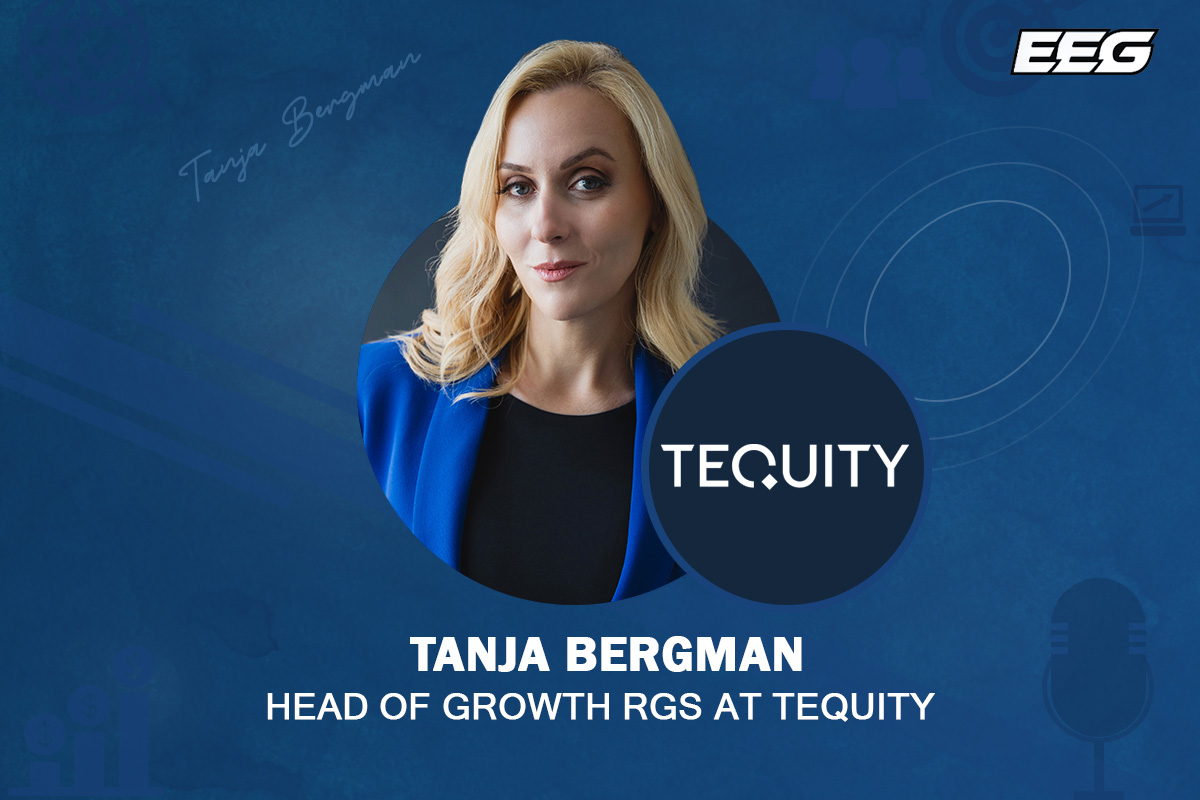
Following the announcement of its new publishing vertical and the successful debut of Royal Drop, we sat down with Tanja Bergman, Head of Growth RGS at Tequity, to discuss how this new arm is set to dismantle technical barriers for ambitious studios and why scalability is the new frontier for the ‘Burst Games’ genre.
Tequity has just officially launched its Publishing vertical. What was the primary catalyst behind this move?
The industry is currently in a fascinating place. There is no shortage of creative talent among studios, but there is a massive technical bottleneck. We have seen so many ambitious studios with incredible concepts – especially those moving beyond traditional slots – who have been getting bogged down in terms of getting those concepts out into the marketplace.
The catalyst for Tequity Publishing was simple. We wanted to break down those technical barriers. By handling the infrastructure, distribution, and compliance frameworks, we allow studios to do what they do best, which is build outstanding games. It’s about speed-to-market without compromising on the quality or the vision of their content.
The launch coincides with the release of Royal Drop. How does this game, and the partnership with Mirror Image Gaming and The Fortune Engine, showcase what Tequity Publishing is all about?
Royal Drop is the perfect proof of concept. It’s a collaboration that highlights three important pillars of modern game delivery. You have Mirror Image Gaming bringing that fresh, video-game-influenced Burst Games energy, The Fortune Engine provide the math tools and templates, and Tequity Publishing offers the global scale and distribution pathway.

It shows that when you remove operational friction, you can create a game-first experience that appeals to a new generation of players who want something more interactive than a standard 5×3 reel.
Tequity Publishing offers two models: RGSaaS and RGS-to-RGS. Can you walk us through the strategic benefits of each?
Flexibility is key, because no two studios are at the same stage of their journey. The RGSaaS model is our full-service offering. It’s designed for studios that want to focus 100% on the creative side. We provide the entire infrastructure and publishing framework and it is essentially a business-in-a-box for game creators.
The RGS-to-RGS model is a more streamlined, tech-first approach for studios that already have their own RGS but lack the distribution muscle. It allows them to plug into our growing operator and aggregator network instantly. Both models are built on the same philosophy: helping studios reach parts of the market they otherwise couldn’t access on their own.
You mentioned reaching new generations of players. How does this vertical specifically empower studios to innovate in ways they couldn’t before?
When a studio is concerned about how they are going to integrate with a multitude of different operators or how to navigate complex jurisdictional requirements, they tend to play it safe. They stick to what they know.
By taking that weight off their shoulders, we give them the opportunity to be brave. Studios like Mirror Image Gaming are pushing the boundaries of modern iGaming, taking influences from the video game world. This is exactly what the new generation of players is looking for. We provide the scalability so that these niche, innovative ideas can achieve mass-market impact.
It’s been a busy period for Tequity, following the success of your Originals series and the iBankroll partnership. How does the Publishing vertical fit into the broader Tequity roadmap for 2026?
It’s all part of becoming the ultimate technology partner for the gaming industry. Whether it’s our streamer-friendly Originals or our Bankroll-as-a-Service offering, the goal is to provide scalable, customisable solutions. Tequity Publishing is the natural evolution of that mission. We aren’t only providing the tools anymore, but also the pathway to the player. Looking ahead, you can expect a series of further launches through our three-way collaborations. We’re proving that the barrier to entry for innovation has never been lower.
Finally, for studios looking to scale quickly, what is your main message to them?
Don’t let technical noise drown out your creative signal. If you have a game concept that breaks the mould, you shouldn’t have to spend years building the distribution architecture to get it seen. That’s what we’re here for. We want to help you launch at a speed and scale that matches your ambition, so that you can make a significant splash in the industry.
The post Scaling innovation through the launch of Tequity Publishing appeared first on Eastern European Gaming | Global iGaming & Tech Intelligence Hub.
BetMGM
Breaking America with BetMGM
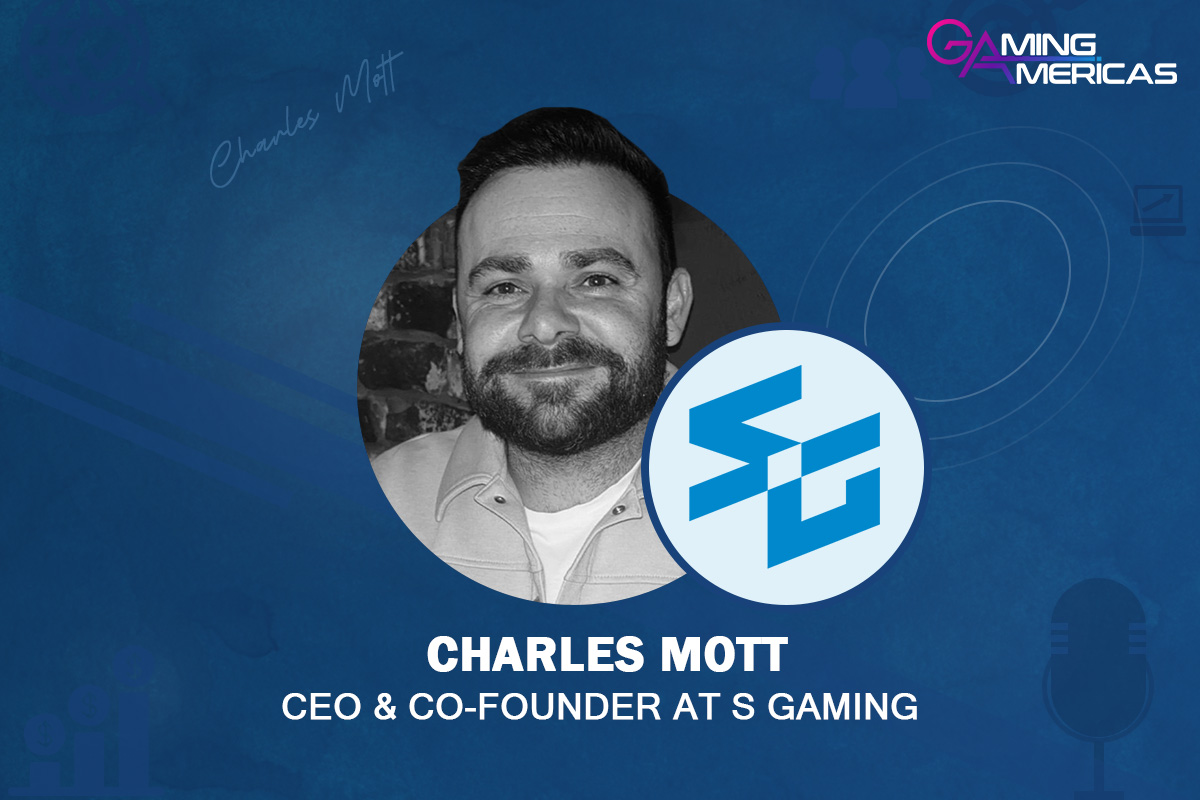
We speak to Charles Mott, CEO & Co-Founder at S Gaming, about the provider’s move into the US market with BetMGM and why more casual gameplay hits the mark with players stateside
Congratulations on your deal with BetMGM in the USA. Why is this such a milestone market launch for S Gaming?
The deal with BetMGM marks our hotly-anticipated launch in the US market, and sees our games go live to players in core regulated states such as New Jersey, Pennsylvania, West Virginia and Michigan. We see huge potential for our content in the North American market, and to make our debut with such a high-calibre operator is a testament to this. The US is still just finding its feet as a regulated online casino market, and our games, with their focus on sustainability and high entertainment, are the perfect fit for audiences who are used to land-based slots and are increasingly moving online. They are simple, easy to understand and play, and ultimately deliver tons of fun over longer playing sessions – just like the slot machines found on the floors of casinos in Las Vegas and beyond.
Just how important was it to go live with a tier-one operator like BetMGM? And how will the deal allow you to quickly build momentum in the US?
It’s mission critical. Going live with BetMGM allows us to build immediate trust with players, tap into a large and loyal playerbase, and simultaneously enter multiple regulated iCasino states at the same time. Now that we are up and running with BetMGM, we are turning our attention to striking partnerships with other operators active in the market. It’s pretty much the same blueprint that we’ve followed in our home market of the UK where we are now live with all but a handful of brands – something we have been able to achieve in a little over two years. We know the US is a slightly different market, but we are confident in our approach to game development and, as we gather more data on how US players interact with our games, will use this feedback loop to guide our product roadmap going forwards so that each title is better than the last and more suited to the preferences of US players.
You mentioned that your games are aimed at more casual players. How does this align with the preferences of US consumers?
If you walk onto the gaming floor of any Las Vegas casino, you’ll see row after row of slot machines. Increasingly, these machines are designed to keep players entertained for longer through gripping gameplay and regular wins. A lot of online slot content delivers high risk/high reward gameplay, where players can quickly clear through their balance as they hunt down big wins – wins that don’t land all that often. In a market where operators care deeply about retention and lifetime value, games that keep players spinning for longer really matter. Our approach to producing sustainable, fun games for players in the UK and Europe has allowed us to not only stand out but to engage players at scale, and we are confident players in the US, especially those who enjoy land-based slotting, will also be drawn to them at scale.
Has launching in the US been a major undertaking for S Gaming, or did it prove to be plain sailing for the most part?
When planning our move into the US market we identified two routes. We have our own remote game server, so we could build on that, secure licences in each state we wanted to enter, and then deploy our content directly with operators. The other option would be to work with a third-party RGS provider that already has the licences and integrations we needed. While the first option might sound like the best, in reality, especially for a smaller studio, the cost of and resources required for securing individual state licences can be prohibitive. So instead, we joined forces with Gaming Realms as they have the cutting-edge RGS and licences (in both the US and Europe) we were looking for. This means we simply need to build a US version of each game on the Gaming Realms RGS and can then deploy content with the wide range of operator partners they are connected with in regulated iCasino states across the US.
Tell us more about the initial run of games you’ve launched with BetMGM.
We’ve launched the partnership with Barnyard Bash Chicken Chase which will be followed by Triple 7 Jackpot in February and Cat and Mouse Collect in March – with one new game a month to follow as we build out our US portfolio. If players were to try just one of our games, it would be Barnyard Bash Chicken Chase. It gets players clucking as they spin the reels, collect Eggs and add them to the growing Nest – the more eggs collected, the bigger the Nest Egg becomes. Not only that, Eggs can randomly activate the matching colour-coded Nest Egg and award entry to the Chicken Trail feature, drop Egg-stra Free Spins or lay an Instant Prize.
But once they’ve tried it, they’ll definitely want to take Triple 7 Jackpot for a spin. This classic slot is dripping in neon action – the Triple 7 feature is always on screen but is locked until a spin lands three Bonus 777 symbols. This unlocks the feature with on spin awarded, giving players a shot at the 500x Jackpot prize. Free Spins are also up for grabs with seven Free Games awarded when three Scatters land in the base game.
Finally, Cat and Mouse Collect is a playful, feature-rich slot built around a simple but engaging Collect mechanic. Players pin the reels, collect up the cheeses and feed the hungry mice until they’re fit to burst. Green plates will serve up an instant prize, Blue will start the wild and wacky Cheese Chase and Red dishes out some feisty Free Spins. With regular feature triggers and plenty of on-reel interaction, it’s designed to keep players engaged from spin to spin without relying on extreme volatility.
What does success in the US look like for S Gaming over the next 12-18 months?
Success for us isn’t about one big hit, it’s about becoming a trusted, widely-distributed supplier in regulated iCasino states. Over the next year we want to significantly expand beyond BetMGM, roll out a steady pipeline of US-optimised titles and build the kind of player data and
operator relationships that let us grow sustainably. If players in New Jersey, Pennsylvania and Michigan are regularly choosing S Gaming titles as part of their core rotation, then we’ll know we’re really breaking into the market.
The post Breaking America with BetMGM appeared first on Americas iGaming & Sports Betting News.
3 Fortune Trees.
Kendoo interview: Can stability be the new innovation?
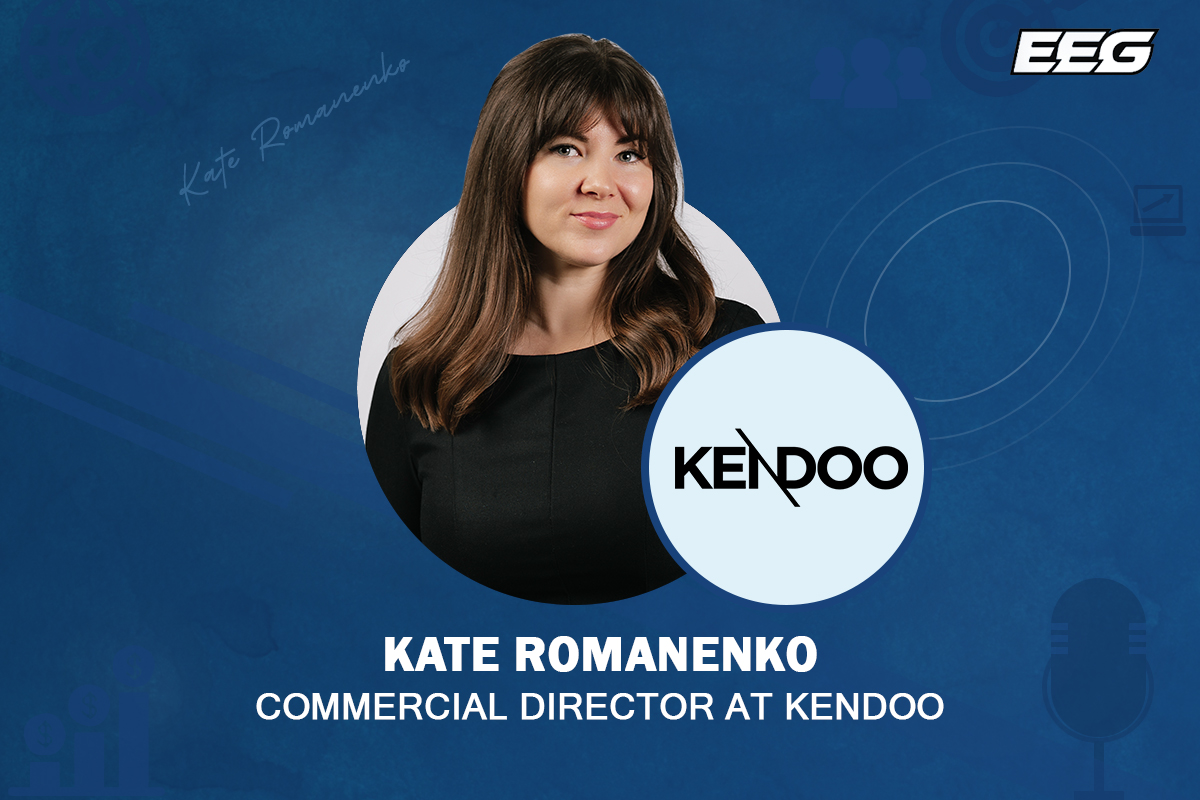
What innovation consists of within the slots industry is often debated. While there are often calls for more groundbreaking features to be introduced, the reality is that the progression of trusted and popular concepts is what drives the industry forward with new releases.
We caught up with the Kendoo’s Commercial Director, Kate Romanenko, to understand more on how long-term retention is often underpinned by controlled evolution of proven concepts, as shown in the company’s success over the past year.
In an industry driven by novelty, why do you think long-term consistency is becoming just as valuable as innovation?
In the competitive iGaming market, everyone is obsessed with “what’s next,” long-term consistency has become a signal of trust. Operators are increasingly cautious: they want games that perform predictably over time, not just those who grow only on launch. Controlled evolution, like we showed with 3 Pots and 4 Pots games, such as 3 Fortune Trees, 3 Gates of Pyramid, 4 Egypt Scarabs etc., proves that you can refresh mechanics and visuals without breaking what already works. Innovation still matters, but when it’s backed by performance data and retention, it becomes scalable, sustainable value rather than short-lived hype.
How does Kendoo ensure technical and gameplay stability across its growing portfolio, especially as it scales into new markets?
At Kendoo, we build on a select set of well-tested core mechanics, evolving them thoughtfully rather than introducing unproven systems. Each game reflects our research, experience, and deep understanding of player needs. This approach lets us expand into new markets without compromising reliability, delivering operators consistent performance and players a smooth, familiar experience they can trust.
What role does reliability play in building strong partnerships with aggregators and platforms?
Reliability is the foundation of trust with aggregators and platforms. When integrations are stable, launches are predictable, and games perform consistently, partners can scale with confidence. For Kendoo, reliability reduces operational friction on their side, fewer incidents, faster rollouts, and clearer performance expectations. Over time, this turns a supplier relationship into a long-term partnership, where growth is planned together rather than driven by constant risk around new releases.
Do you think players are beginning to value dependable, well-balanced games over constant experimentation?
Players enjoy novelty, but they return to games that feel fair, familiar, and well-balanced. Constant experimentation can create friction, while dependable mechanics build confidence and habit. That’s why evolved formats with proven performance tend to retain better: players know what to expect, and that reliability turns curiosity into long-term engagement. For example, taking mechanics like Pots, which originated in land-based casinos, and successfully adapting them for online play.
Can you point to a Kendoo title that’s become a steady performer over time and what that tells you about what players really value?
A clear example is 3 Fortune Trees. Since launch, it has consistently driven strong retention and engagement across markets, with an average of 500 bets per player, which is excellent. The game demonstrates that players value Pots mechanics and reliable, well-balanced gameplay over flashy, one-off features. Its engaging mechanics, popular theme, and premium art and animation all come together to create a game that players love to play.
The post Kendoo interview: Can stability be the new innovation? appeared first on Eastern European Gaming | Global iGaming & Tech Intelligence Hub.
-

 BetPlay6 days ago
BetPlay6 days agoBlask Awards 2025: Betano, Caliente, BetPlay, Betsson and others define Latin America’s iGaming landscape
-

 Canada6 days ago
Canada6 days agoComeOn Launches New Marketing Campaign in Ontario
-

 iGaming6 days ago
iGaming6 days agoMajestic Claws Hold & Hit leaps into Spinomenal’s slots portfolio
-

 Latest News6 days ago
Latest News6 days agoThrillTech partners with Nordplay Group to launch ThrillPots across Nordic-facing casino brands
-

 DEGEN Studios6 days ago
DEGEN Studios6 days agoDEGEN Studios brings Wild West chaos to the reels with Sunset Showdown
-

 Brightstar Lottery PLC5 days ago
Brightstar Lottery PLC5 days agoBrightstar Lottery Delivers Industry-Leading Sales Force Automation Solution to Ontario Lottery and Gaming Corporation
-

 bingo halls5 days ago
bingo halls5 days agoBingo Halls and Casinos in Colombia Increased Their Contributions to Healthcare System by 9.3% in 2025
-

 Compliance Updates4 days ago
Compliance Updates4 days agoFinland Govt Looks at Whether Scratchcards can be Gifted Again





